 When I was at University, each class was allotted a three hour period.
When I was at University, each class was allotted a three hour period.
The majority of professors gave a lecture which lasted about an hour and a half. Then there was a short break, before we gathered again for a seminar.
Others just talked at us for the whole three hours.
Then we encountered Dr Bruce Young. One did not simply attend his lectures; they were experienced. He was a real show-man, who did things like suddenly leaping onto a table and dropping his watch to the floor. It demonstrated gravity well enough for a load of Philosophy students. I think I learned more in his sessions, than in the entire six years' worth of everyone else's classes put together.
So imagine our stunned reaction when, after forty minutes, Dr Young announced that it was time for a break. We had ten minutes to run wild, then we had to come back. It felt like we'd hardly even begun, but here we were rushing for a quick drink in the Union, or diving into the toilet block. It's quite amazing what you can fit into ten short minutes.
Another forty minutes of sheer educational entertainment ensued, followed by ten minutes off. The final session led to the end of the lecture. Never once did we flag nor our attention wander. There was method in Dr Young's madness.
The human brain, we were informed, wasn't formed to concentrate intensely for long periods. It takes information in, assimilates it, then files it away. If you try to fill it too quickly, bits get lost at the edges.
Dr Young had studied the phenomenon and concluded that forty minutes was the optimum period of time for absolute focus. Beyond that, discomfort and distractions intrude. Those ten minutes act like wringing out a water-logged sponge, ready for it to soak up more. It gives your mind a breather, ready to take on more knowledge.
It evidently worked. We all passed. I've used that forty minutes on, ten minutes off routine for study ever since. You can survive any project, essay or revision, if you can see an end to it. Those ten minutes are for Facebook, grabbing a cuppa or texting your friends. The forty minutes are for working as hard as you can without distraction.
As long as they rigidly cycle within their allotted times, then everything will get done very quickly. It won't even feel too much like work.



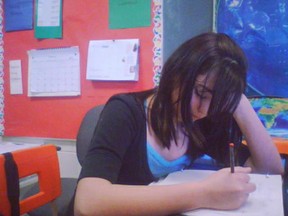 Studying can be fun. No, really, it can! It's all a matter of approaching your learning in the right way.
Studying can be fun. No, really, it can! It's all a matter of approaching your learning in the right way.


 There is nothing more torturous than being forced to plough through something of which you have no interest.
There is nothing more torturous than being forced to plough through something of which you have no interest.
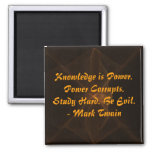

 When I was at University, each class was allotted a three hour period.
When I was at University, each class was allotted a three hour period.


 It had been a hard day's work for my father. All he wanted to do was retire to the bathroom with his newspaper, then chill out for the rest of the night.
It had been a hard day's work for my father. All he wanted to do was retire to the bathroom with his newspaper, then chill out for the rest of the night.
 My friends and I have this thing which we call 'passive research'. It's all about gaining a free education off whatever the other person is studying.
My friends and I have this thing which we call 'passive research'. It's all about gaining a free education off whatever the other person is studying.
 When you were learning how to walk, you didn't read a book about it first. When you were learning to talk, you didn't pause to write an essay, you just did it! Now let your toddler self remind you how to truly study.
When you were learning how to walk, you didn't read a book about it first. When you were learning to talk, you didn't pause to write an essay, you just did it! Now let your toddler self remind you how to truly study.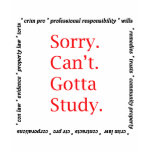

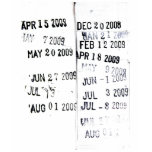


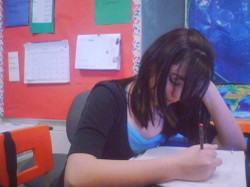

 St Tydecho's Churches in West Waleson 09/03/2014
St Tydecho's Churches in West Waleson 09/03/2014
 Goodies for an Outlander Premiere Partyon 03/06/2015
Goodies for an Outlander Premiere Partyon 03/06/2015
 Holocaust Memorial Day Interview with Rainer Höss, Grandson of Rudolf Architect of Auschwitzon 01/24/2015
Holocaust Memorial Day Interview with Rainer Höss, Grandson of Rudolf Architect of Auschwitzon 01/24/2015
 Romantic Valentine Gifts for an Outlander Fanon 01/16/2015
Romantic Valentine Gifts for an Outlander Fanon 01/16/2015

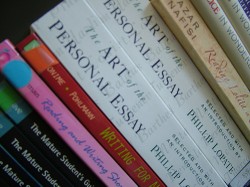

Comments
Thank you very much. I will certainly check out your article. <3
These are great tips :) Everyone learns and studies differently, and should identify what works best for them. Check out my lens on blended learning: http://wizzley.com/blended-learning-i...
Indeed! And that's really stuck in my head now too. I finally grasped what was happening in Physics from your analogies. Passive learning is an amazing way to become more educated!
Passive learning, such as equating particle physics to throwing clocks at each other :P
You're very welcome. Formally studying can feel like such a massive undertaking. It's only when you realise that we do it all of the time anyway, that you can work out tips from your own life to make it painless. Just look how we'd approach, say, discovering everything about a favourite celebrity, then apply. <3 Good luck with it all with your child.
Jo, This is really good stuff. My kids never had to study until AP classes and its hard to help a child learn to study when they've never had to nor have I needed to teach them. I must say I was amazed as to what a loss I was. Thanks for these practical tips to learn it is easy and much appreciated.
I'm very glad to help out. Good luck with your study. :)
Nice! I have a shitload to study so these come in handy :D
Congrats again on your degree! I love hearing about everyone's techniques. Ember's arranging furniture and you're drawing doodles. It just shows how study can be fun, if you work out what's the best way to do it.
I'm nearly 7 years down the line and I can still remember stuff from my dissertation!
You're not banned. The Wizz rater is faulty at the moment, but the tech team are working on it. <3
Thank you. I think my parents would have preferred it if I hadn't got dreadlocks, but the rest made them grin. :D